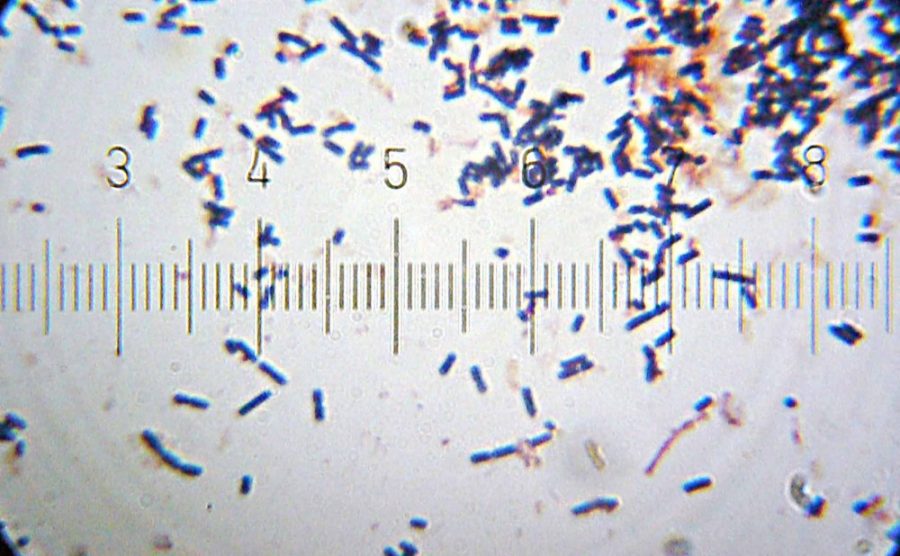Did you know that whenever you add sauerkraut to your hot dog or kimchi to your rice you’re eating millions of living microorganisms? These microscopic organisms are known as probiotics, and they play an important role in human and animal health.
“With the emergence of the resistance against antibiotics, I think probiotics certainly are one of the arsenals that we [have] to use for providing protection,” said Arun Dhar, professor of shrimp and other crustacean aquaculture and director of the UA Aquaculture Pathology Laboratory.
Probiotics are microorganisms in either humans or animals that beneficially affect their host by improving the properties of the microbiome, said Uwe Hilgert, director of STEM training at the BIO5 Institute.
The term “microbiome” can be used to refer to anything outside of our bodies, such as the things on our skin or hair, but also applies to our gut, inner ear and lungs, Hilgert said. Think of the microbiome as a community teeming with all different types of organisms, ranging from bacteria to yeast to eukaryotic microbes.
Hilgert listed three ways these microbes can safeguard our bodies against dangerous pathogens:
First, they supply us with important nutrients. Second, they use a process known as “competition” to minimize infections. Third, probiotics also prime our immune system to help prevent the chance of infection.
These three processes work together to help build a strong network of infection-fighting organisms.
RELATED: Beefy bugs: antibiotic-resistant bacteria pose threat to health
For example, the antibiotics you might receive from a doctor to fight off an infection will end up killing your microbes. To remedy this, a doctor might advise taking an over-the-counter probiotic supplement or increasing the amount of yogurt or sauerkraut in your diet, Hilgert said.
“The idea is to minimize the chance that the pathogenic microbes take over when the antibiotics [you take are] stopped,” Hilgert said.
Hilgert added, that though it hasn’t been fully proven yet, some other potential suspected benefits from probiotics include obesity and asthma prevention and improving our mental health.
While we as humans can best ensure a healthy number of probiotics in our bodies by eating foods such as kimchi or sauerkraut, animals also have their own ways of maintaining a healthy microbiome.
In the UA’s Aquaculture Pathology Laboratory, Dhar is working to prevent disease in shrimp through the application of probiotic feed.
The shrimp in the laboratory are given a feed formulation containing probiotics and then exposed to various types of pathogens.
Similar to humans, these probiotics increase the shrimp’s immunity, improving their growth, health and protection from diseases, Dhar said.
Shrimp have the added advantage of living in an aquatic environment, which is teeming with microbes, Dhar added. These bacteria from the natural environment can reside in an animal’s gut.
Much like the application of antibiotics in humans, animal microbiomes also suffer when hit by unfamiliar microbes.
“In a shrimp, for example, which is healthy, you tend to get a diverse microflora, but we know that when animals are infected, oftentimes and particularly for bacterial infection, their gut microflora is changed and the diversity is lost,” Dhar said.
And while feeding the shrimp probiotic supplements is certainly beneficial, Dhar said it’s not a one-size-fits-all situation.
“It’s not that if you feed one particular probiotic it’s going to be protection against all kinds of bacteria and virus, not at all,” Dhar said. “Certain probiotics provides better protection against certain pathogens.”
The same reasoning applies to humans.
RELATED: CRISPR gene editing tech brings countless opportunities and challenges
If you go to the store and buy a jar of sauerkraut, it’s likely that it will either have been boiled and sterilized or contain preservatives, thereby killing the probiotics, Hilgert said.
He added that this defeats the purpose of replenishing the living organisms in your microbiome, so it’s important to read the labels of the probiotics you’re buying.
One solution to this problem is a do-it-yourself approach to fermenting your own probiotics, Hilgert said.
Fermentation doesn’t just give your kimchi or kefir a nice sour taste; it also increases the number of bacteria on the food and preserves it, keeping it safe from mold, Hilgert said.
“There are a couple things that people need to look out for,” Hilgert said. “Do they get any living or potentially living organisms in their system, or are all the microorganisms that they’re getting dead?”
Hilgert recommended that when eating meals high in sugar or salt, which can have a negative impact on your microbiome, to try to add probiotics to your plate.
“I think probiotics aren’t the only means; [they] should be one of the components in disease management, actually,” Dhar said. “It is good to have [probiotics] in the disease management kit.”
Follow Hannah Dahl on Twitter.









